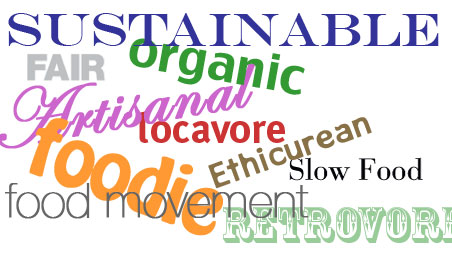Zack Denfeld, a self-described information ecologist and lecturer at Pacific Northwest College of Art — and my good friend — is developing a creative form of resistance through his Center for Genomic Gastronomy. Taking a Yes Men-inspired, tongue-in-cheek approach, Zack is extending the logic of genetically modified organisms to their unnatural conclusion by putting them in situations their inventors never considered.
In his first experiment with the Center, Zack made sushi rolls out of GloFish — a patented, genetically engineered fluorescent zebrafish, which is publicly available as a pet. The idea, as Zack explains in the above video, is to give people the opportunity to beta-test transgenic fish before the FDA approves transgenic salmon — likely to soon be the first such animal approved for human consumption.
Says Zack:
What’s really interesting about [GloFish] is they’ve been existing in science labs and all of a sudden one guy had a really interesting market strategy, which was to make them available to the public. And we think that’s really innovative and we’re building on his innovation by cooking with them.
I don’t know how happy he is about that, but I want to ask you how happy you are with these recipes. If you’re all for transgenic foods, you’ll love my sushi rolls. If you don’t like my glowing sushi rolls, you may want to tell the US FDA to hold off on that transgenic salmon.
The decision is up to you. You are no longer passive. You are active in this process.
In another experiment — this time going after the secret nature of biotechnology research — Zack created a recipe for Vegetarian Bouillabaisse. It calls for a Fish Tomato, a somewhat mythical beast that involves a tomato being inserted with a cold-tolerant gene from a fish.
Is the Fish Tomato vegetarian? Is it an animal? Is it a plant? We don’t know.
But it’s important to eat this, taste this, and find out. The problem is, we can’t because both the genome and the data that came out of the research vanished in a cloud of confidential business information and corporate appropriation. The issue here is that if we don’t have the data, we’re not doing science. Science is about verifiability and repeatability.
So we need to stop calling the people who don’t give us data scientists. They’re not scientists. They’re just biohackers like me and you. Until they make their data public, we should not call them scientists.
When I spoke with Zack about his work, he stressed the importance of being able to reach these so-called scientists with our concerns. They are people, after all, who presumably can be reasoned with and persuaded to reconsider their actions.
In just the past few months, French activists have uprooted GM vines at a research center, Spanish activists have destroyed experimental GM maize crops, and Haitian farmers have burned Monsanto seeds.
When these biohackers’ work is challenged destructively, they, like most people, respond with indifference. They just write off the protesters. If, however, we expose their inability to anticipate their work’s consequences, they may be far more willing to listen. Having scientists on our side, instead of on the corporations’, may be the key to wresting back control over our food systems.
 Stop & Glow roll created for the Glowing Sushi cooking show.Photo: Catherine Kramer/Center for Genomic Gastronomy
Stop & Glow roll created for the Glowing Sushi cooking show.Photo: Catherine Kramer/Center for Genomic Gastronomy
A version of this post first appeared on Waging Nonviolence.



